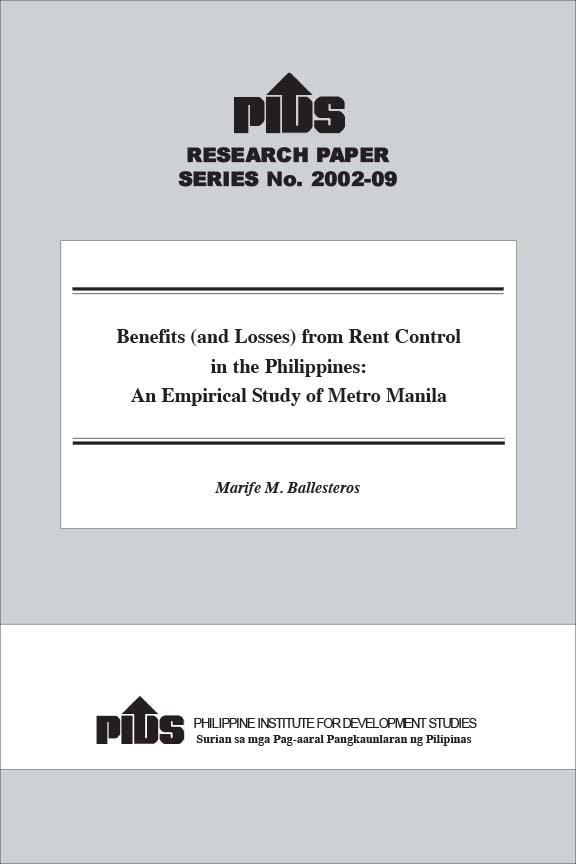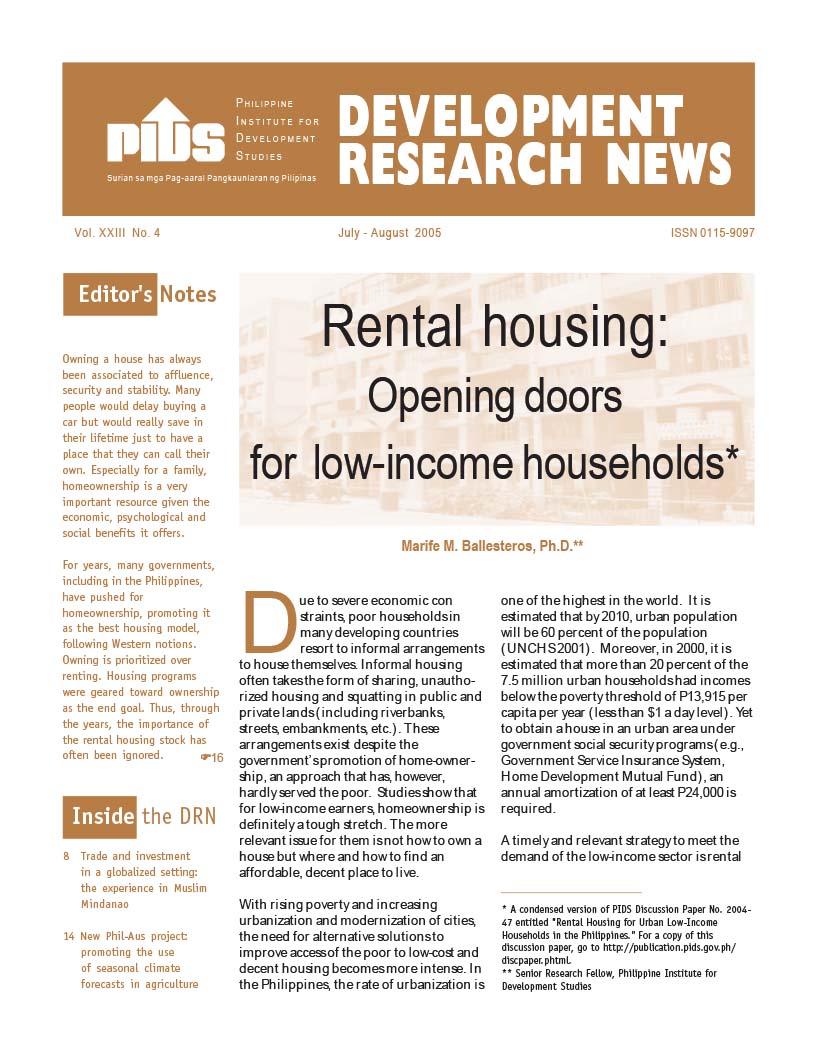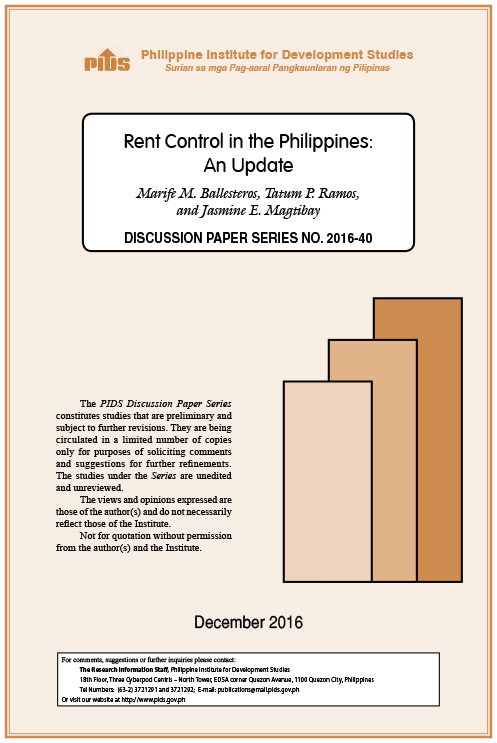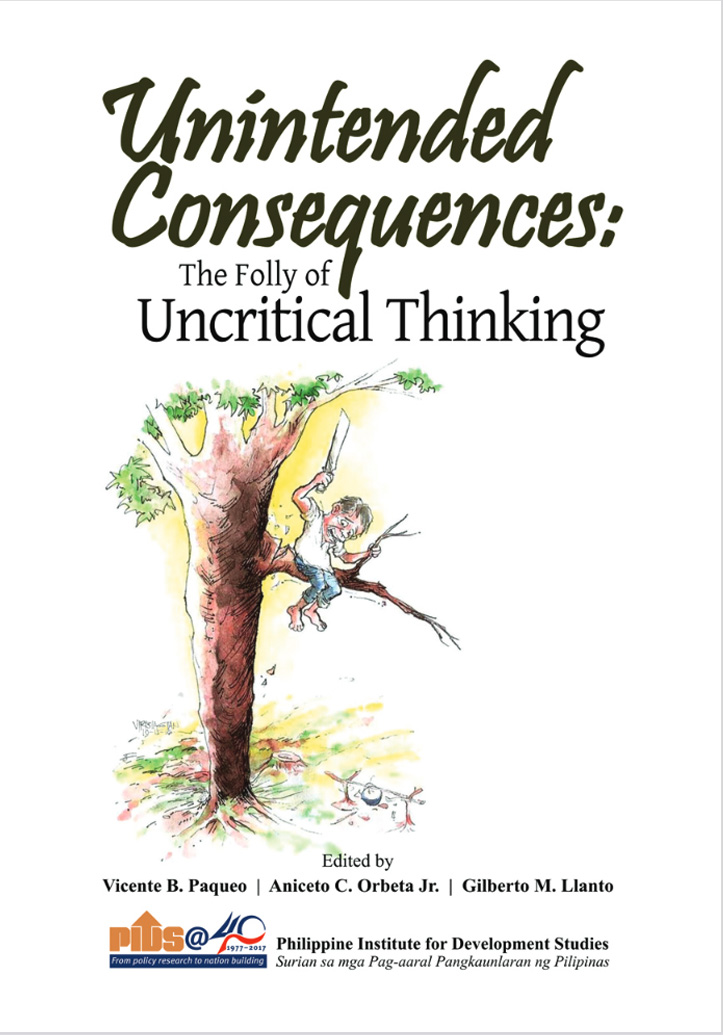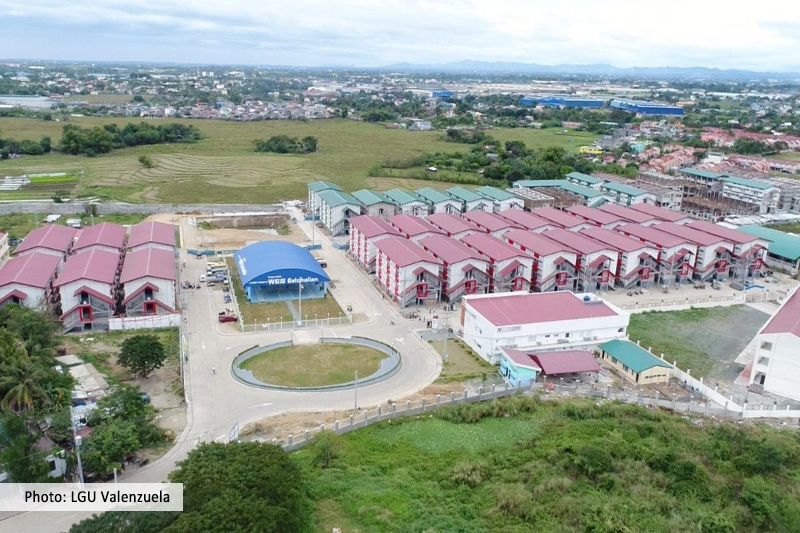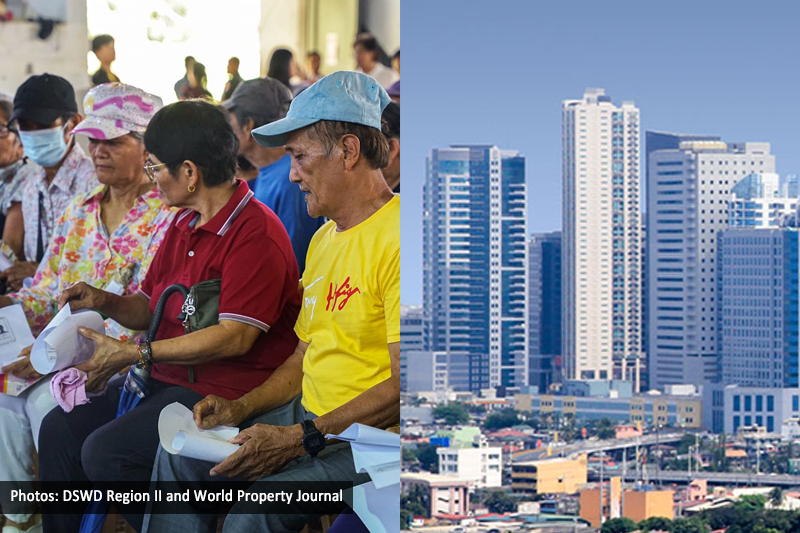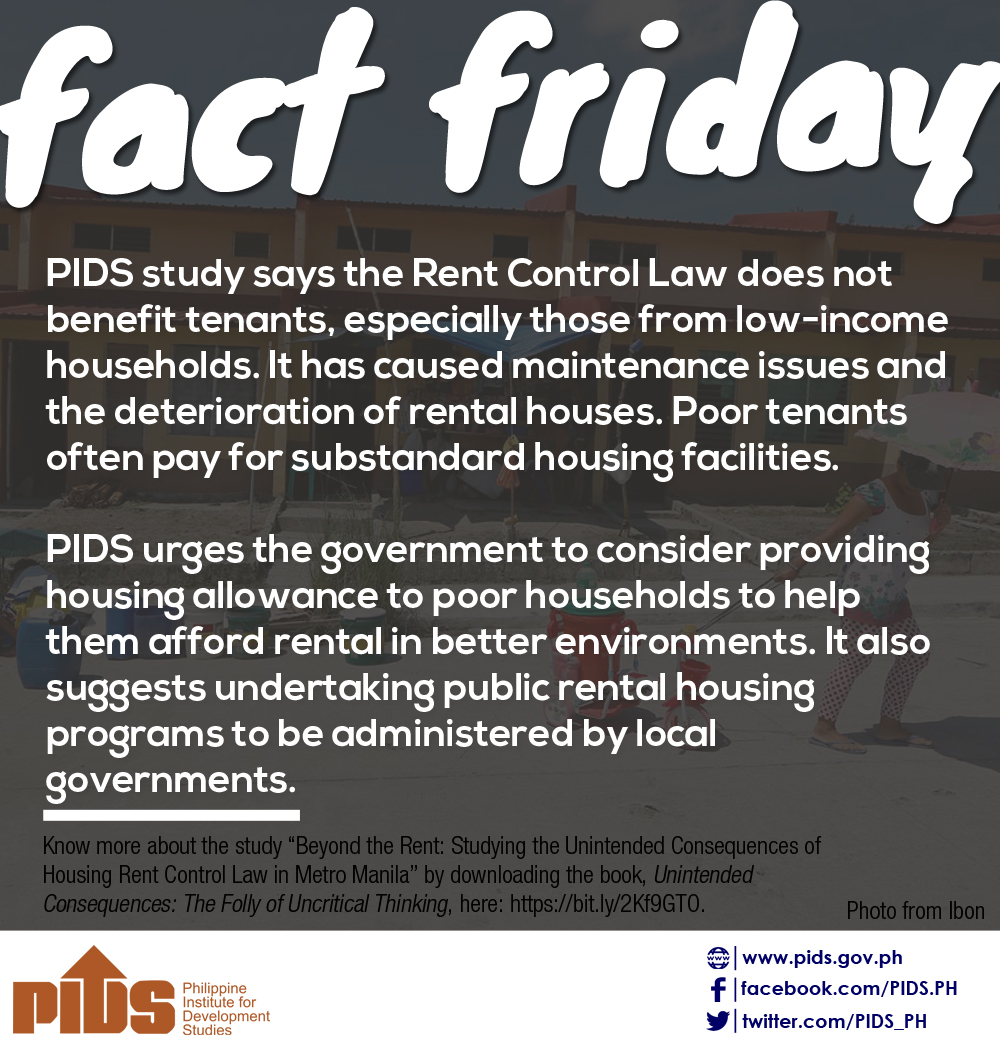This study examines benefits (and losses) from the rent control law in Metro Manila. The results show that net benefits from rent control are positive and targets mainly the poor families. However, benefits have negligible effects on income. They also tend to be eroded by the regressive effects of rent control on supply of rental housing, in particular, the strict eviction provisions of the law. Stiff competition for low-priced rental housing, low quality of housing for the poor, higher rents for the uncontrolled sector, and misallocation of resources are the possible effects of rent control on housing. It is recommended that government find other alternative schemes to the rent control law. Possible schemes include the provision of rental allowances to the poor; provision of low-cost financing to landlords, including those who are into self-help housing; and rent of government land on leasehold basis to developers interested to go into rental housing.
Citations
This publication has been cited 2 times
- Ballesteros, Marife M.. 2004. Rental housing for urban low-income households in the Philippines. Discussion Papers DP 2004-47. Philippine Institute for Development Studies.
- Kholodilin, Konstantin A.. 2018. Measuring stick-style housing policies: a multi-country longitudinal database of governmental regulations. Discussion Papers of DIW Berlin 1727. DIW Berlin, German Institute for Economic Research.

